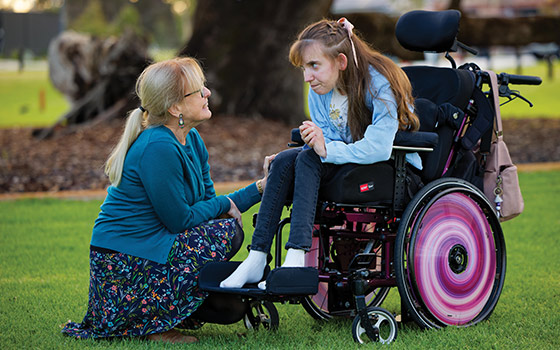Search
Research
Level of purposeful hand function as a marker of clinical severity in Rett syndromeWe investigated relationships between hand function and genotype and aspects of phenotype in Rett syndrome
Research
Valproate and risk of fracture in Rett syndromeThis study investigated the relationships between fracture risk and commonly used AEDs in Rett syndrome.
Research
Early determinants of fractures in Rett syndromeThe goals were to compare the fracture incidence in Rett syndrome with that in the general population and to investigate the impact of genotype, epilepsy,...
Research
Lost in translation: translational interference from a recurrent mutation in exon 1 of MECP2Rett syndrome (RTT) is an X linked neuro-developmental disorder affecting mostly girls. Mutations in the coding region of MECP2 are found in 80% of classic...

The Quality of Life Inventory - Disability
Research
Down Syndrome Clinical Trial- BTD-001Helen Jenny Peter Leonard Downs Richmond MBChB MPH BApplSci (physio) MSc PhD MBBS MRCP(UK) FRACP Principal Research Fellow Head, Child Disability
Research
Environmental enrichment intervention for Rett syndrome: an individually randomised stepped wedge trialHelen Jenny Leonard Downs MBChB MPH BApplSci (physio) MSc PhD Principal Research Fellow Head, Child Disability +61 419 956 946 08 6319 1763
The list of The Siblings Project publications
The studies this project has conducted

Participate in The Sibling Snapshot Project! <!-- [if gte mso 9]> <![endif]--> <!-- [if gte mso 9]> Normal 0 false false false EN-AU X-NONE X-NONE <!
